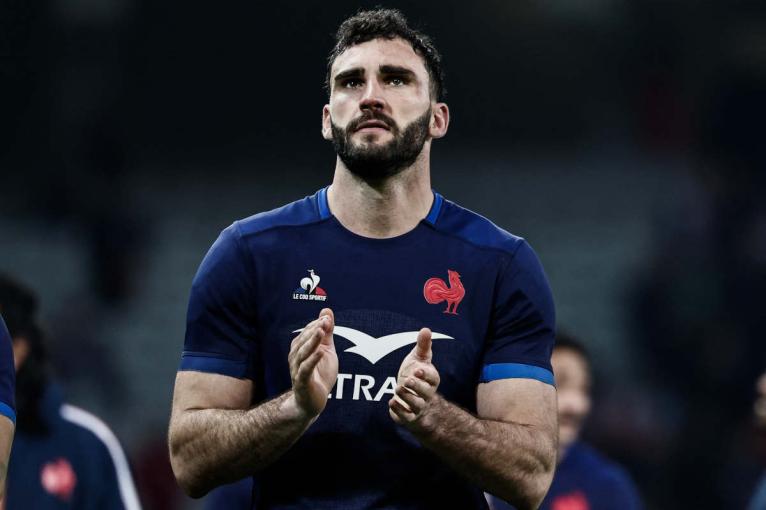Schalk Burger believes that France have been “found out” tactically in the first three rounds of the Six Nations. Found out and worn out, by the looks of things.
The former Springbok flanker also pinpointed a lack of “intensity” so far in the Championship, contrasting their lethargy to their blood and thunder performance against South Africa in the quarter-final of the World Cup.
One suspects that if the Springboks had been playing week in, week out since the middle of November they might also be on the jaded side. As it is, the world champions and the rest of the southern hemisphere nations enjoyed a long leisurely break over Christmas, and they are still easing themselves back into action four months after the World Cup.
South Africa’s first Test of 2024 is against Ireland on 6 July, the same month that the All Blacks, Australia and Argentina play their first internationals of the year.

The Pumas host France in a two Test series in July, providing they are some French players still standing. If they’re shattered now, imagine how they’ll be in four months’ time, after the Top 14 and Champions Cup have run their course.
If Fabien Galthié has any sense he’ll leave his World Cup players at home. Head to the beach, boys, do nothing more energetic this summer than building a sandcastle. It will be an opportunity for Galthie to run an eye over the exciting band of youngsters who are making their mark in the Top 14: three-quarters such as Nicolas Depoortère, Léo Barré and Emilien Gailleton, the giant second-rows Emmanuel Meafou and Posolo Tuilagi, and promising loose forwards like the Toulouse trio of Mathis Castro-Ferreira, Léo Banos and Théo Ntamack.
These players have profited from the absence of their international team-mates this season, who disappeared for the World Cup, then returned for a few weeks before heading off to the Six Nations.
The Irish can win as many Grand Slams as they want, but they’re all meaningless if they can’t make an impression at the World Cup.
In all, there were just 97 days between the World Cup final and the opening match of the 2024 Six Nations. Which raises the question: should there be a Six Nations the year after a RWC? The federations need the cash but the players need a rest, and player welfare must be more than just kind words spoken earnestly.
As it is, this is a largely irrelevant Six Nations. Ireland are on course for another Grand Slam – richly deserved – but surely even their most fanatical supporter will feel a little hollow if they complete the clean sweep on 16 March. Ireland blew the big one in October, losing to New Zealand in the World Cup quarter-final and extending their baffling record of never reaching the last four of the tournament. The Irish can win as many Grand Slams as they want, but they’re all meaningless if they can’t make an impression at the World Cup.

England, on the other hand, are developing a knack for being shambolic in the Six Nations but Rugby World Cup smart. Wales and Ireland have won more Grand Slams this century than England (four, three and two respectively) but England have three RWC final appearances to their name, one of which was a victory. They very nearly made it four last October, running South Africa agonisingly close in the semi-final.
When Clive Woodward was appointed England coach in 1997 he told the press that he wanted to be judged on the World Cup. The first one, 1999, came a little too early for him but his squad was physically and mentally at their peak in 2003. That was also the year England won their only Grand Slam under Woodward. One Grand Slam in seven attempts could be considered an under-achievement, but what England fan cares when they are still the only northern hemisphere nation to have won the World Cup?
Eddie Jones, who was appointed coach of England after their disastrous 2015 RWC campaign (the only time the English have failed to reach the quarter-finals) was of a similar view to Woodward about his priorities. “Of course, the next game is important, no-one is ever saying it’s not,” he said in 2022. “But…the World Cup is the ultimate trophy.”
Such powerful emotions don’t just vanish from one week to the next. It will require several months, perhaps not until next season, before the players and staff are fully recovered.
This view wasn’t shared by Jones’ boss at the RFU, Bill Sweeney, who was of the opinion that “you’ve got to be competitive in the Six Nations, not just every four years at a World Cup”.
Jones and Sweeney are both right. The World Cup is the holy grail but the Six Nations is an important pathway towards that objective. But not the tournament immediately after the World Cup.
So far in this year’s championship, England have reverted to type, Ireland are back to their best and Scotland and Wales are as frustratingly inconsistent as ever. It’s the French who have taken everyone by surprise, not least their own media. ‘Anatomy of a Fall’ was the headline in last week’s Midi Olympique, a reference to an award-winning film that has packed out French cinemas this year.

In its analysis of what has gone wrong with France in the tournament, with just one win from their first three matches, Midi described Galthié as suffering a sporting form of post-traumatic stress. Galthié used the ‘trauma’ word himself in explaining how hard it had been to process the quarter-final defeat to South Africa. “I underwent a long period of strong introspection,” said Galthié at the start of this year. Had he and his staff the motivation and the desire to continue? It was discussed, and decided that they did.
Nonetheless, such powerful emotions don’t just vanish from one week to the next. It will require several months, perhaps not until next season, before the players and staff are fully recovered.
France may have fallen down in the Six Nations but they’ll be back on their feet next year – provided they’re given time to recover.
In his excellent recent book, The Boys of Winter, Lawrence Dallaglio describes what it was like for England to return home after winning the World Cup in Australia in 2003. The euphoria was short-lived, and when it wore off the exhaustion took over.
Most of the squad were back playing for their clubs within a fortnight, and in the 2004 Six Nations England were way off the pace. They lost at home to Ireland – their first defeat at Twickenham for five years – and then they went down to France, their first back-to-back defeats in the Six Nations for 11 years. And what did the summer bring? “Some stupid idiot had an idea,” wrote Dallaglio. “We’d been playing rugby for almost three years and now we’re going to play two Tests against the All Blacks and one against Australia…I tell you where we should have been going: we should have been going to a beach somewhere.”
Galthié gave his squad the week off after the draw against Italy. It’s not beach weather just yet in the south of France but the rest will have done the players some good. But the real rest must come this summer. France may have fallen down in the Six Nations but they’ll be back on their feet next year – provided they’re given time to recover.


Comments
Join free and tell us what you really think!
Sign up for free